Making lifestyle changes
If there’s one common thread among people who’ve successfully lost weight and kept it off, it’s that they made a dietary lifestyle change. It usually includes a combination of controlling portions, limiting unhealthy foods, and identifying environmental and emotional triggers that lead to overeating.
Many eating plans—including crazy fad diets—don’t lead to such lifestyle changes because they’re simply hard to maintain long-term. If you’re deciding between different weight-loss routes, compare yours against this list of signs that yours may be setting you up for failure. Take a look at the best diet for every decade.
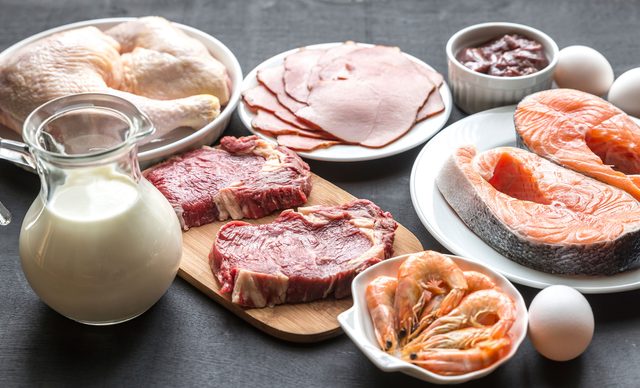
Bad diet: It’s a total 180 from the way you currently eat
A diet that doesn’t fit your needs or everyday life is a bad one. Can’t imagine a Sunday dinner without roasted meat as a centerpiece of the meal? Then choosing a vegetarian or vegan plan will be harder for you to follow. Know you won’t be able to spend more than 15 minutes preparing dinner on hectic weeknights? A diet that’s heavy on home cooking may become frustrating before long. “Sustainability is perhaps the biggest factor to success,” says Kristin Kirkpatrick, RDN, a registered dietitian nutritionist and owner of KAK Consulting in Denver. “Choosing the right eating pattern is not about finding something that worked for your friend, your neighbor, or a celebrity. ” Here’s the secret protein trick nutritionists swear by.
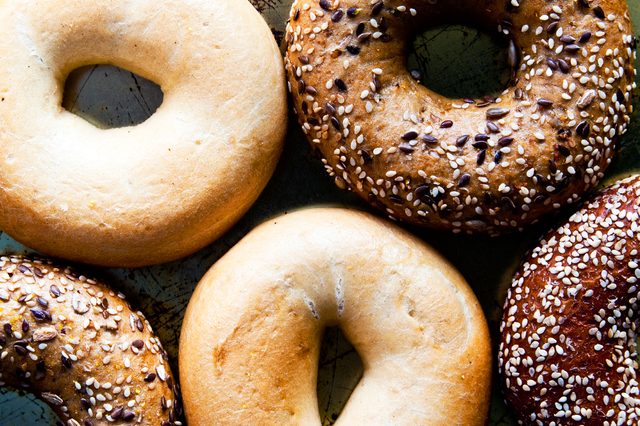
Bad diet: It eliminates entire food groups
Most nutritionists will tell you there’s no food group or nutrient you should eliminate completely. Diets that forbid macronutrients wholesale, like carbs, tend to be unsustainable long-term and are a telltale sign of a bad diet. Carbohydrates, for example are essential for providing energy. You likely can quit eating anything for a short period without issues. But if cutting an entire food group is the reason you’re losing weight, you’ll start gaining again as soon you bite into your next bagel.
“Any diet that involves the notion that you are deprived won’t last long term,” says Kirkpatrick. “A healthy mix, in a nutrient-dense manner, even if it’s higher calorie, has been shown to be more effective to weight loss long-term. The Mediterranean diet is a perfect example of this. This is also why time-restricted eating is so popular and evidence-based. You can still eat foods you love some of the time, but the frequency of how many hours you are actually eating change.”
These are the food mistakes that even healthy people make every day and how to avoid them.
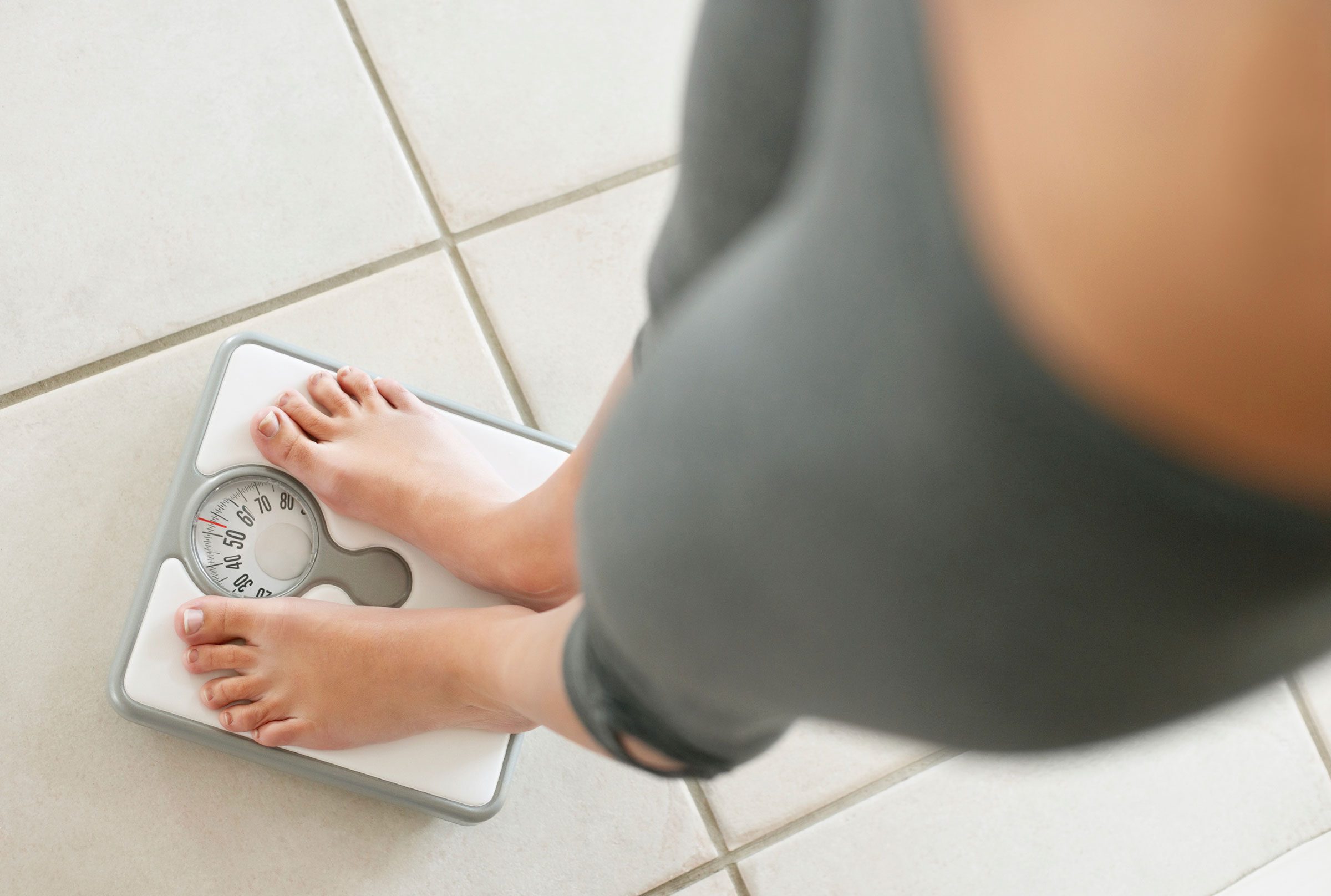
Bad diet: You don’t lose weight soon after starting
We are extremely motivated by psychology and positive reinforcement. If the scale doesn’t budge or your jeans don’t slide on a little easier after a few days, it’s easy to feel deflated and give up before the diet has a chance to work. But a quickie weight-loss plan isn’t the answer. A study published in 2018 in Medical Clinics of North America shows how early rapid weight loss is certain to be followed by a plateau and progressive regain. Instead, aim for a gradual loss of about 1 to 2 pounds per week. Here are the 20 reasons your diet isn’t working.
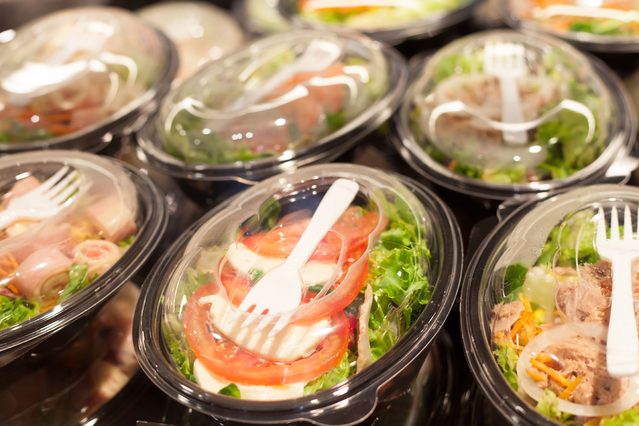
Bad diet: The plan is a little too convenient
If every single meal comes out of a prepackaged container, chances are the diet is going to be challenging to stick to during life’s inevitable bumps in the road, whether it’s a friend’s birthday dinner or a week-long vacation. Some people can eat those premade meals, and learn what a healthy portion looks like so they can cook their own. Some cannot. And once you fall off the wagon, it can be hard to motivate yourself to start all over again.
“If the meals are nutrient dense—and that’s a big if—then you can easily get the fuel you need packed in a source that is high in fiber, vitamins, minerals, healthy fats, and lean proteins,” says Kirkpatrick. “But the cheaper ready-made food is often more processed. This can make us eat more.”
Plus, research shows we’re not getting enough NEAT (non-exercise activity thermogenesis). These are the calories we burn from daily fidgeting and little activities, like walking, washing dishes, or chopping veggies by hand. These high-effect NEAT movements could burn an extra 2000 calories per day beyond the basal metabolic rate, depending on body weight and level of activity, suggests a study published in Mayo Clinic Proceedings. The more “convenient” your diet is, the less spontaneous physical activity you’re getting. Here are 10 ways your “healthy” salad is making you gain weight.

Bad diet: You can’t dine with friends and family
How often do you eat because the people around you are hungry? Your co-workers decide to grab lunch at noon, so you do. The friends you’re dining with decide to get started with some appetizers, and you join them. Your partner asks to see the dessert menu, and somehow there are two spoons. A review of studies published in Global Journal of Health Science suggests that sharing a meal with others leads to greater happiness and well-being.
That’s just part of what makes a restrictive eating plan that doesn’t let you enjoy meals—even occasional ones—with others tough to stick to. Similarly, if you’re following a plan that no one else in your family will eat, you’ll need all the more motivation and willpower to stick to it when they order in pizza. Don’t miss these subtle signs you’re eating way too many carbs.

Bad diet: You’re not encouraged to exercise
Any eating plan that encourages you to skip exercise is questionable. A review of studies published in the journal Progress in Cardiovascular Diseases found that the combination of physical activity and cutting calories can improve the chances of weight loss. And physical activity plays a major role in maintaining weight loss.
Even apart from the weight loss benefits, physical activity offers many health benefits. It improves insulin resistance, prevents insomnia, improves lung function, boosts energy, strengthens bones, prevents chronic pain, and more. Plus exercise, particularly in the morning, can give you a dose of “I-can-do-it” confidence that can trickle down to other healthy habits, such as passing by the office candy jar. Don’t miss these 15 wacky ways you can burn extra calories.
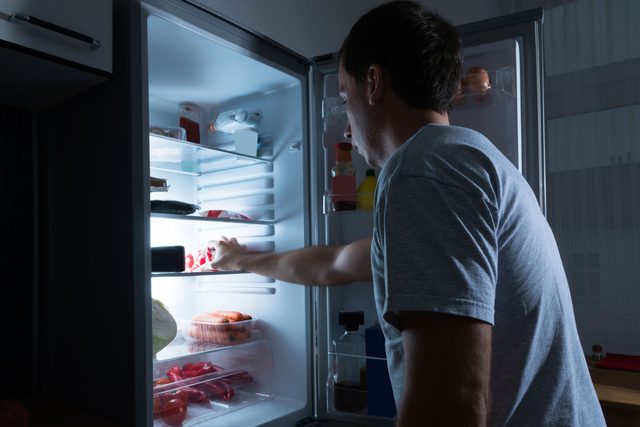
Bad diet: It makes you hungry, grumpy, or worse
Weight loss is hard, but it shouldn’t feel torturous. If you’re overly hungry, it could be you’re not consuming filling calories—like those from fiber-rich veggies. If you’re grumpy, you may be feeling deprived. “Hunger can also come when we are bored, dehydrated or lack sleep,” says Kirkpatrick. “We may use these excuses to feel better about eating when we really don’t need to. The better approach is to start listening to your body.” Otherwise, it’s easier to succumb to an emotional eating binge when the right triggers happen, like a bad day at work, or a spat with your spouse. If you’re not sure where to start with dieting, check out the perfect diet for your personality type.
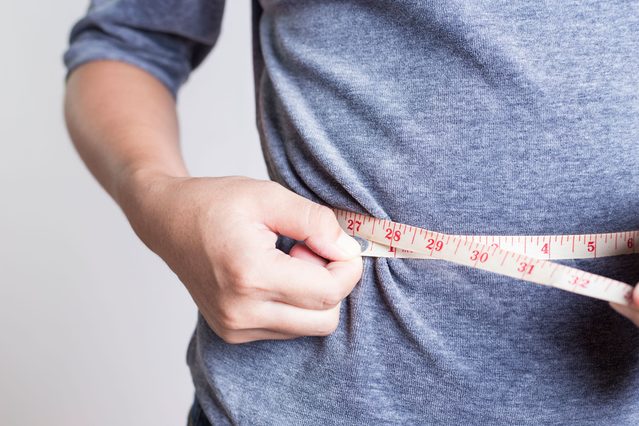
Bad diet: You’re not reaping other health benefits
If you have a lot of weight to lose, there are likely other health metrics that could stand improvement too, like your waistline circumference, cholesterol, blood sugar, blood pressure, or chronic pain symptoms. If your diet only addresses weight loss without positive changes in any of these other issues, it’s not the healthiest way to slim down. “You have to look at several factors when it comes to picking the right diet,” says Kirkpatrick. “Ultimately, it boils down to genetics, history, chronic disease status, weight and of course, it has to be something you can stick with.” Find out which healthy diet plan nutritionists use to lose weight.
